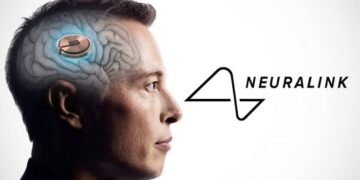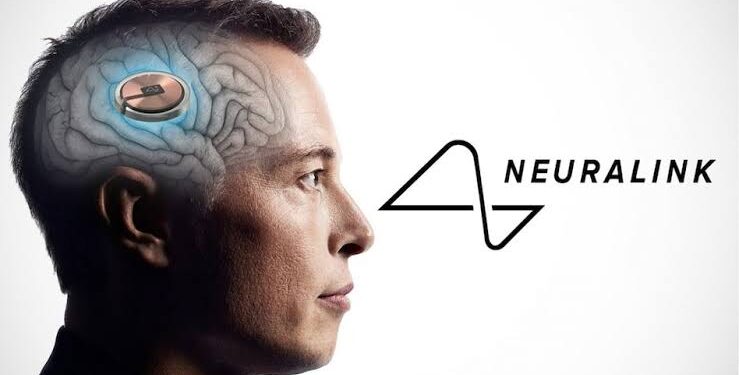By Lucy Adautin
Elon Musk, the tech billionaire, has announced that the first human implanted with a chip from his computer-brain interface company Neuralink has recovered and can control a computer mouse solely with their thoughts.
This development offers a glimpse into the firm’s progress as it strives to restore lost abilities such as movement and vision, while also aiming to enhance capabilities like memory and intelligence.
The surgical procedure, facilitated by Neuralink’s surgical robot, represents a significant milestone for the company in its endeavor to establish direct connections between brains and computers.
In September last year, the company obtained permission to enroll patients for testing the device’s capability to assist individuals with paralysis in regaining lost functions by controlling computers through thought.
READ ALSO: JUST IN: Nigerian Senator Who Made Budget Padding Claims Suspended For Three Months
“Progress is good,” the billionaire said, adding that the patient is suffering “no ill effects” the company is aware of. The patient is able to “move the mouse around a screen just by thinking,” Musk said.
Neuralink is “trying to get as many button presses as possible from thinking,” Musk said, noting that multiple actions like holding a button while moving a mouse can be key to unlocking different actions on a computer.
Musk said Neuralink eventually wants to “have more than just 2 buttons” and is trying to make progress on that front, which he described as “looking very good” overall.
Neuralink is still in the early stages of testing and development and its hopes of widely deploying technology to “read” brains and control computers is still many years in the future. Neuralink’s first products will be aimed at restoring lost functions from people with paralysis or vision impairments, Musk has previously said.
The billionaire stated that Neuralink’s initial products will encompass “Telepathy,” enabling users to control a phone or computer simply by thought, a functionality partly being assessed in this clinical trial. Additionally, the products include features aimed at restoring vision to blind individuals. Musk emphasizes that the technology ultimately aims for broader use to enhance memory and intelligence.
Regulators, as well as consumer demand, naturally set the bar for implanting a device into the brain of a healthy human much higher than that of treating patients with often debilitating conditions and such use will be many years or even decades in the future. Other neurotech companies are further ahead in testing and rolling out neural products to patients than Neuralink, though such firms are focused on treatment, not enhancement.
Meta CEO Mark Zuckerberg recently expressed skepticism of brain implants and neural interface technology as it currently stands. Zuckerberg, a billionaire who cofounded Facebook, said he considers neural interface “one of the wilder things that we’re working on.”
He emphasized that Meta is currently not developing brain implants but might explore the possibility in the future. “Perhaps someday, someone will pursue that, but I wouldn’t want to be an early adopter,” he stated. “I believe it’s prudent to wait until the technology is well-developed. Let’s wait until I don’t have to upgrade it every year”.




































